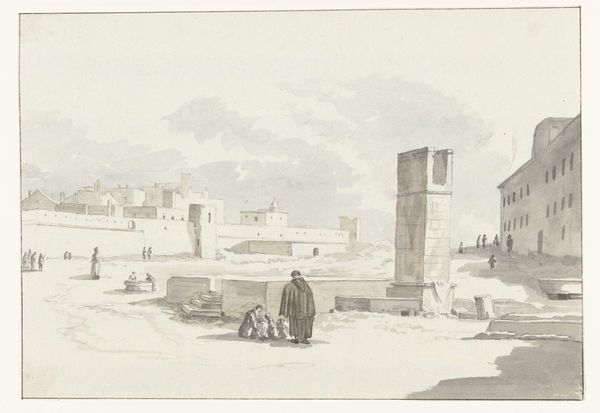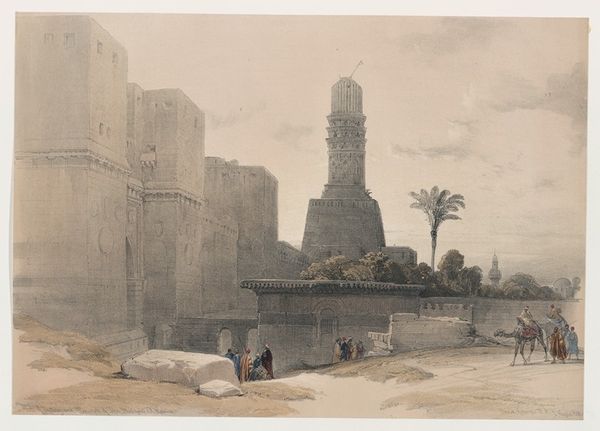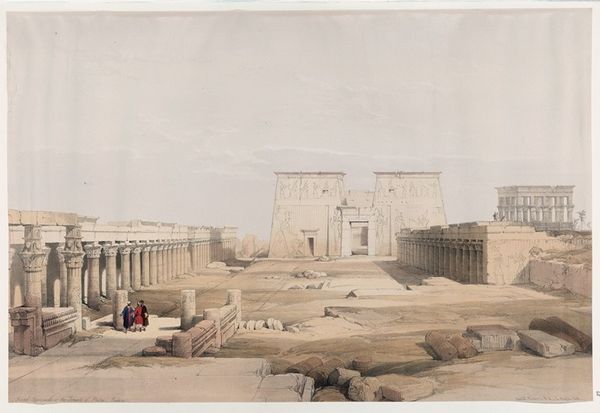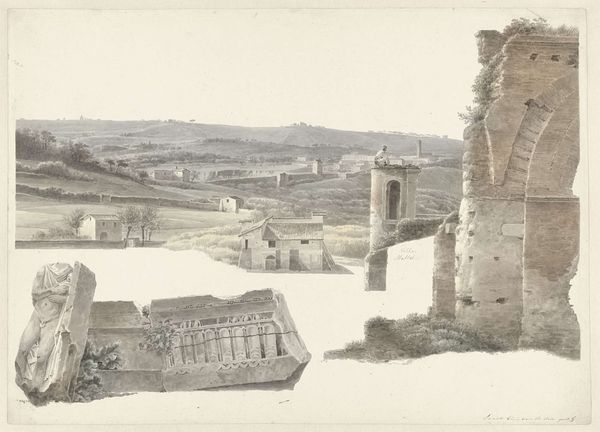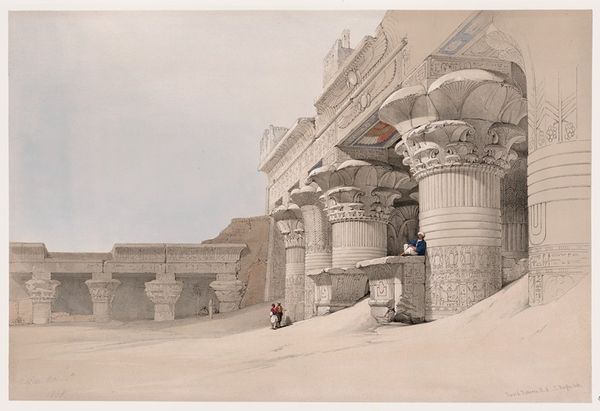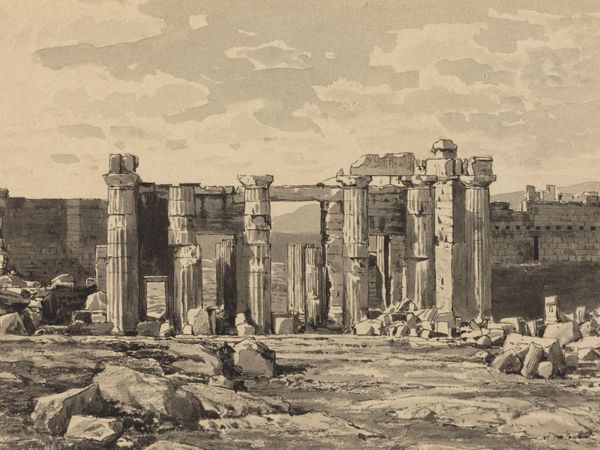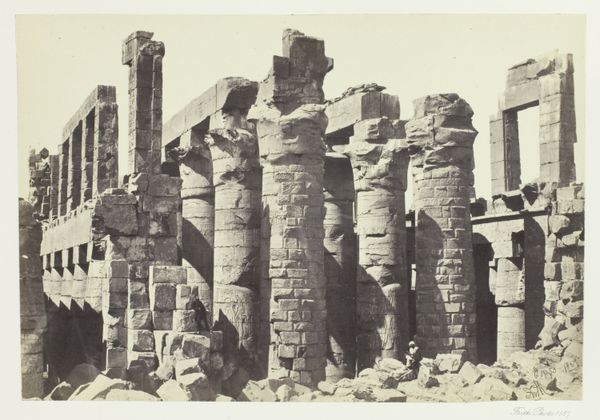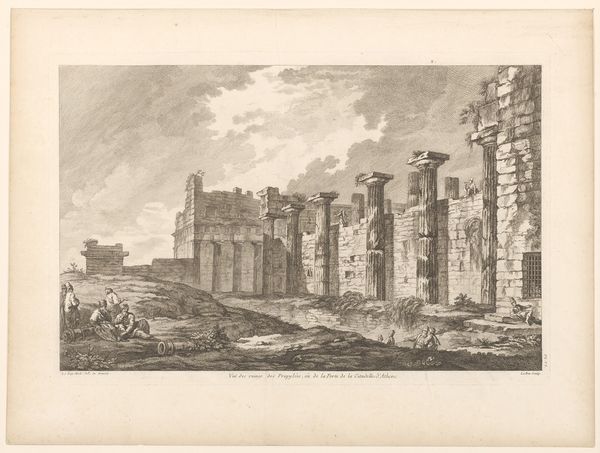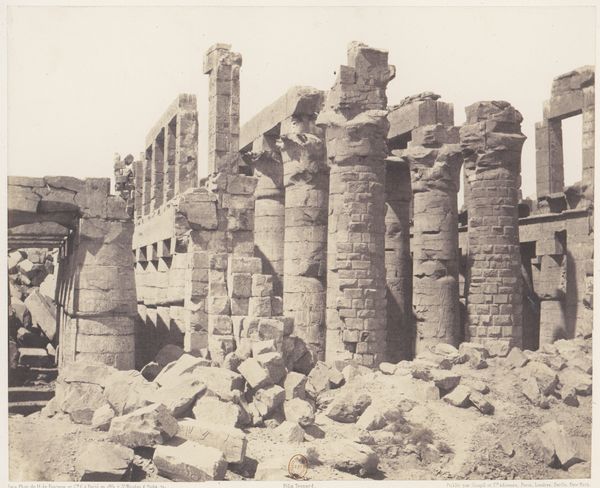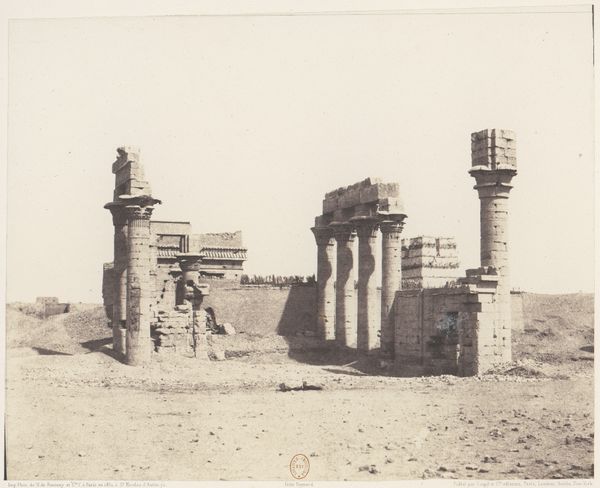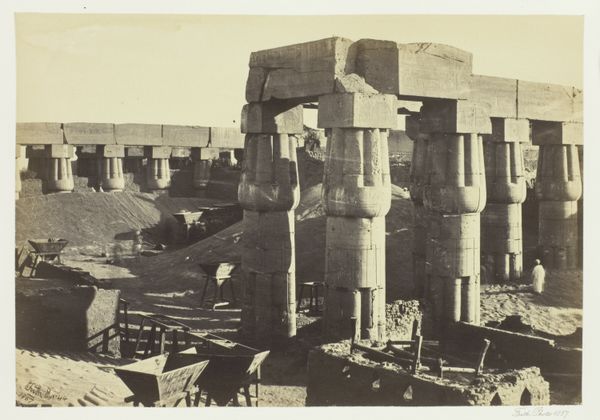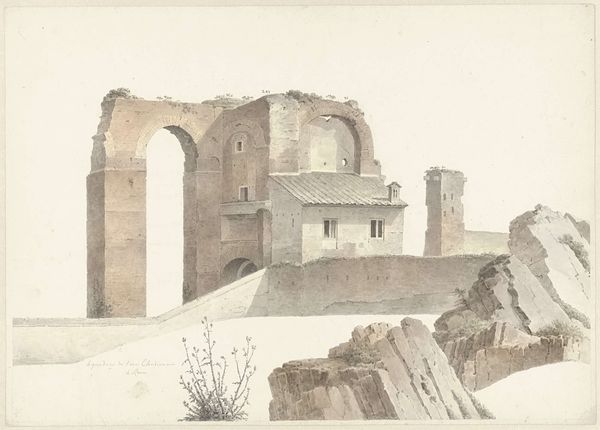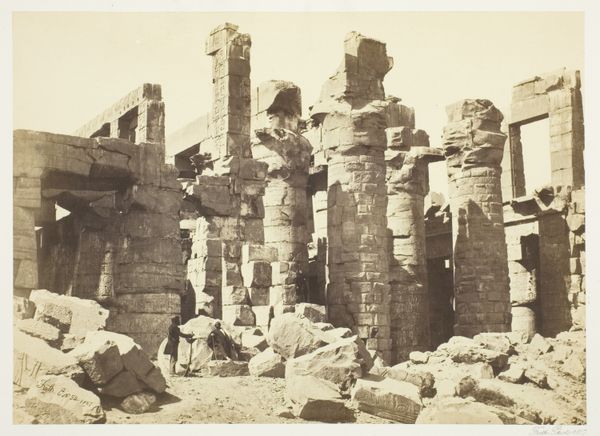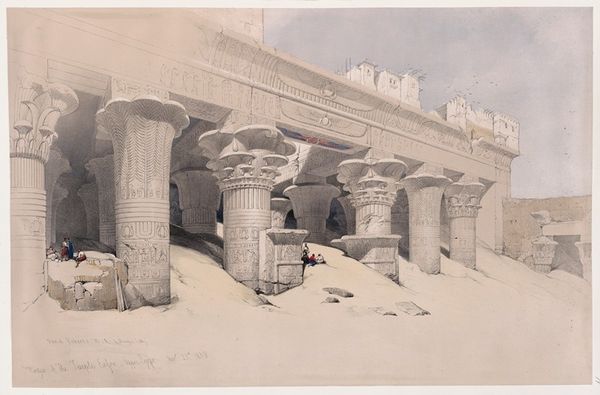
painting, watercolor
#
painting
#
landscape
#
ancient-egyptian-art
#
watercolor
#
underpainting
#
ancient-mediterranean
#
holiday photography
#
watercolour illustration
#
realism
Dimensions: height 356 mm, width 486 mm
Copyright: Rijks Museum: Open Domain
Editor: So, here we have Willem de Famars Testas's watercolour, "Gezicht op de tempelruïnes te Philae bij Aswan," created in 1859. The delicate washes of colour create this sense of a distant, almost dreamlike past. How does this artwork strike you? Curator: This piece, beyond its immediate visual appeal, speaks volumes about the 19th-century European fascination with ancient Egypt. These picturesque ruins, rendered in watercolour, catered to a market eager for romantic visions of the "Orient," reinforcing a power dynamic where Europe exoticized and, in a way, claimed ownership over these ancient sites through artistic representation. Look at how the local figures are positioned - do they appear as active agents or as props within a staged scene? Editor: I see what you mean. They do seem almost incidental, more part of the landscape than central to the narrative. So the painting itself becomes a kind of… colonizing gaze? Curator: Precisely. Consider also the institutional context: images like this, circulating widely through exhibitions and reproductions, helped shape a public perception of Egypt as a land of crumbling monuments ripe for archaeological exploration, even appropriation. Does it change your perception knowing this artwork has served to legitimize cultural extraction? Editor: Definitely. It shifts the focus from the beauty of the ruins to the power dynamics inherent in its depiction. I initially saw a serene landscape, but now I see a complex statement about cultural ownership and the politics of representation. Curator: Indeed. It's a potent reminder that art is rarely neutral; it actively participates in shaping our understanding of history and culture. Editor: Thanks for illuminating the context surrounding the image! Curator: My pleasure! It's always rewarding to explore the layers beneath the surface.
Comments
No comments
Be the first to comment and join the conversation on the ultimate creative platform.
